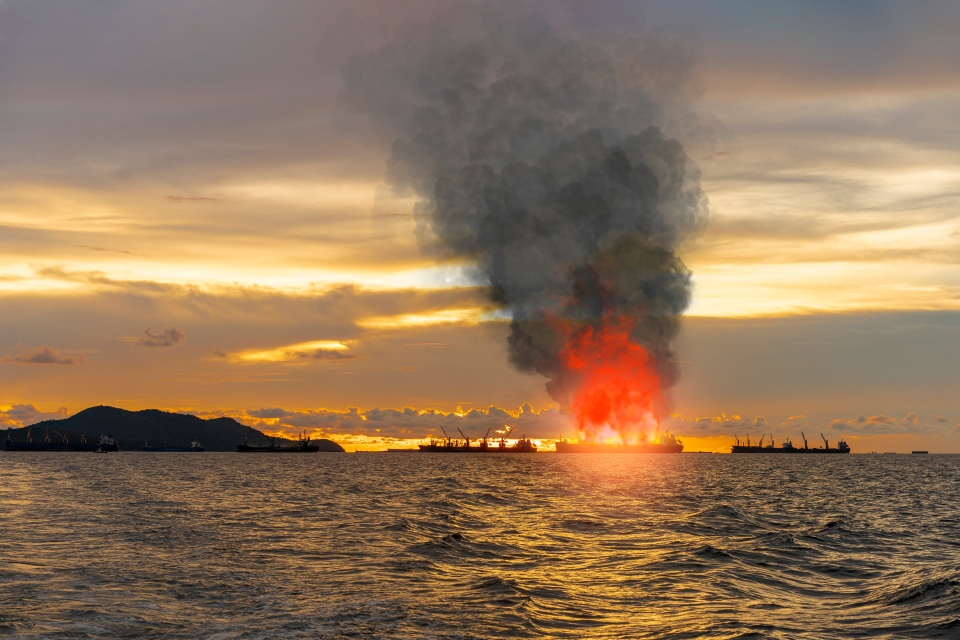Green Instruments has entered into a major agreement with Hudong-Zhonghua Shipbuilding for the delivery of equipment that markedly minimises the risk of shipboard fires. The equipment detects oil mist and vapour on ships and triggers an alarm before fires can develop.
Several times a year, serious fires happen on board container ships, bulk carriers, ferries, and other types of maritime vessels, and in way too many cases, human lives, cargo, and ships are lost. In addition, shipboard fires may cause major environmental catastrophes.
However, Green Instruments, a Danish specialist in advanced measuring equipment for ships, states that many shipboard fires can be prevented if the ships install equipment that can raise an alarm even before fires can develop, as this type of equipment detects oil mist and vapours that the crew can neither see nor smell.
Also read: THB Verhoef partners with Daspos to prevent engine room fires
Oil mist detectors
For this purpose, the company has now entered into an agreement with Hudong-Zhonghua Shipbuilding, a part of China’s largest shipbuilding group, CSSC. Under the agreement, the shipyard will install oil mist detectors from Green Instruments on new ships that the huge shipyard is building for a major customer.
Oil mist is formed by oil droplets floating in the air and can ignite at low temperatures. Green Instruments’ oil mist detector is designed to register the slightest traces of oil mist and vapour from hydraulic oils and bunker fuel, among others, and it will trigger an alarm at the first sign of danger.
By use of laser technology, the detector scans an area of up to 15 metres and can be configured to monitor different areas simultaneously. A display shows the exact location of the oil leak, enabling the crew to react quickly and prevent fires from developing in the engine room or other places.
Also read: Which factors play a role in rising number of ship fires?
The engine room in particular is a high-risk area for fires, as it contains a dangerous mix of oxygen, heat, and pressurised fuel. Oil mist is the most common ignition source of fires on board ships.
‘Many fires happen because the crew are unaware of a leak, and once a fire has broken out, it will almost always have great costs – in the worst cases, the fires have incalculable consequences for the crew, the environment, or the shipping company,’ states Morten Brandborg, Green Instruments CEO.
Engine room fires on ships cost an average of USD 1.85 million, and engine room fires often lead to the vessel being out of operation for a significant period of time.
Also read: Technology call for early hold fire detection solutions
OCIMF
The deployment of oil mist detectors is also high on the priority list of the international Oil Companies International Marine Forum (OCIMF), a leading organisation within safety in the maritime industry. Through the SIRE programme (Ship Inspection Report Programme), OCIMF works to prevent damage to humans and the environment, and the organisation recommends that ships have oil mist detectors and other types of safety equipment on board, because the equipment reduces the risk of accidents significantly.
Picture by Green Instruments
Also read: ‘Shipping losses hit record low, but jump in fires’








